Charity Clark was just enjoying a day of paddle-boarding with her friends off the coast of Florida when she saw something on the surface of the water. It was a shark caught in the fishing line. That’s when Charity went into action.
With her friend Cassie Bailey taking video with her phone, Charity reached into the water with her bare hands to untangle the shark from a rope attached to a crab trap buoy. While the shark remained motionless for a time, it snapped at Charity just as soon as she attempted to free the rope from its mouth. Charity dodged the lunge and, after a small struggle, was able to free the shark so it could swim away. Fortunately, both Charity and the shark weren’t hurt.
- YouTubeyoutu.be
“It was just instinct, I didn’t even think twice,” said Charity. “I saw this animal in distress and just knew I had to help.”
Charity theorizes that the shark was in a trance-like state of immobility that allowed her to untangle the creature with little struggle. In the video, you can hear Cassie question whether the shark was still alive until she saw the shark blink and snap at Charity. While the snap and brief struggle was intense, Charity and her friends were happy and relieved that the shark was safely swimming away afterward.
“We were all smiles watching it swim away. It was such a relief,” she said.
While it’s understandable to be scared of sharks given their reputation in movies like Jaws and sensationalized news reports about shark attacks, the National Oceanic and Atmospheric Administration says that most shark species aren’t a danger to humans since people aren’t a part of their regular diet. That said, it’s recommended to protect yourself and be wary around any ocean creature, not just sharks.
But this shark stigma in conjunction with ocean pollution has made the seas less inhabitable for sharks. Plastic pollution in particular has harmed sharks, either by getting them entangled in plastic or by ingesting it. Ingested plastic can cause blockages in a shark’s internal organs and, even if they free themselves from plastic entanglements, they could damage their fins and impede their ability to swim.
Along with the plastic problems, overfishing of sharks for meat and liver oil has significantly reduced their population throughout all of our oceans. Many sharks are also fished unintentionally, much like the shark that Charity encountered.
- YouTubeyoutu.be
This is a problem as sharks are an important part of a sea’s ecosystem and climate. In their role as predators, they help reduce the population of fish that consume kelp, seagrass, and other ocean vegetation that absorb carbon through photosynthesis. Indirectly, this means that healthy shark populations help reduce global warming.
- YouTubeyoutu.be
For safety reasons, no one recommends that you personally engage with a shark like Charity did when you see one in danger. In fact, it’s best to leave sharks alone and avoid them in general. But if you want to help keep sharks populated and protected, you can donate money and time to experts such as the Atlantic White Shark Conservancy, The Shark Trust, Shark Stewards, or another related, vetted, reputable organization.





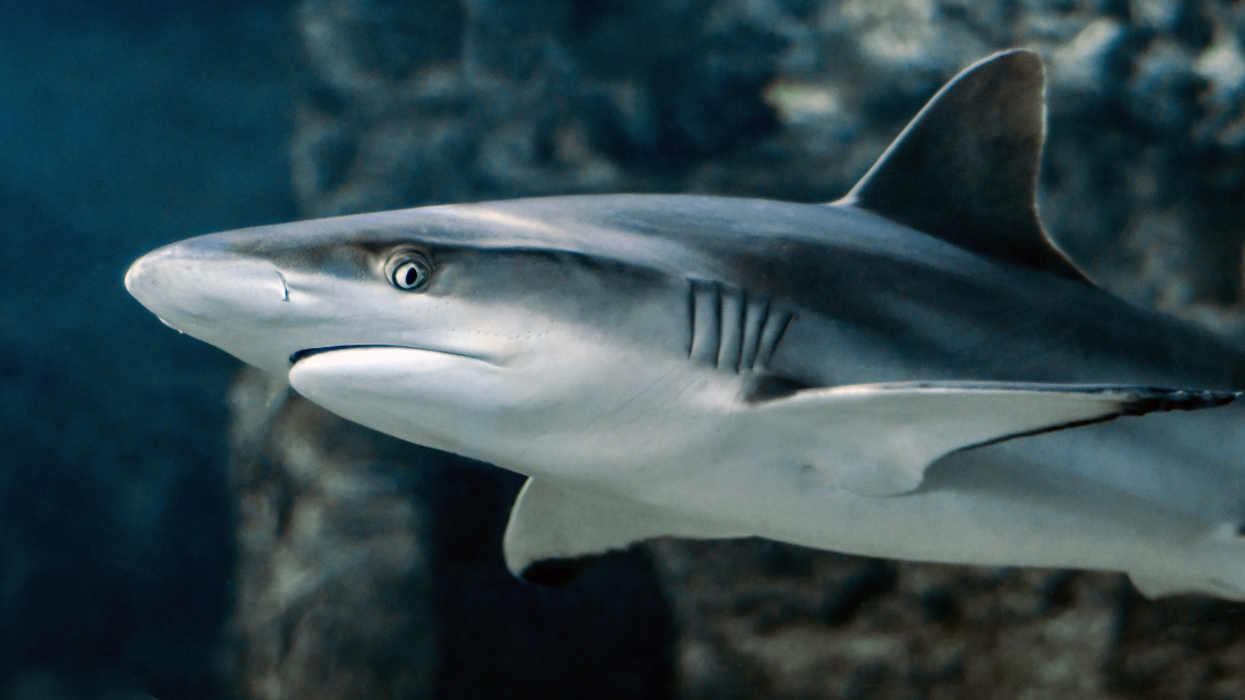












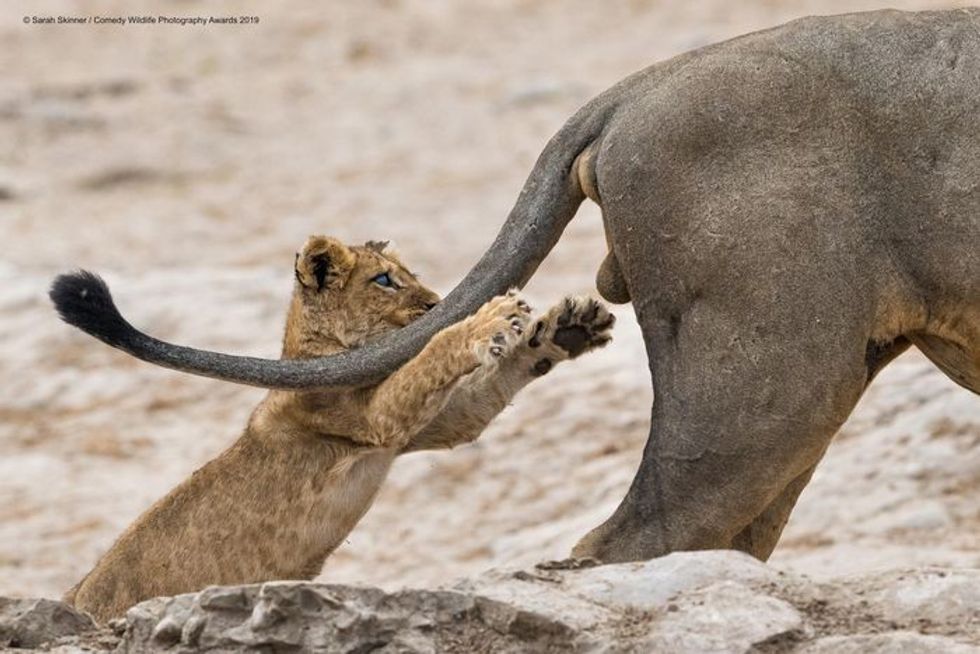 A young lion playing with an older animal
A young lion playing with an older animal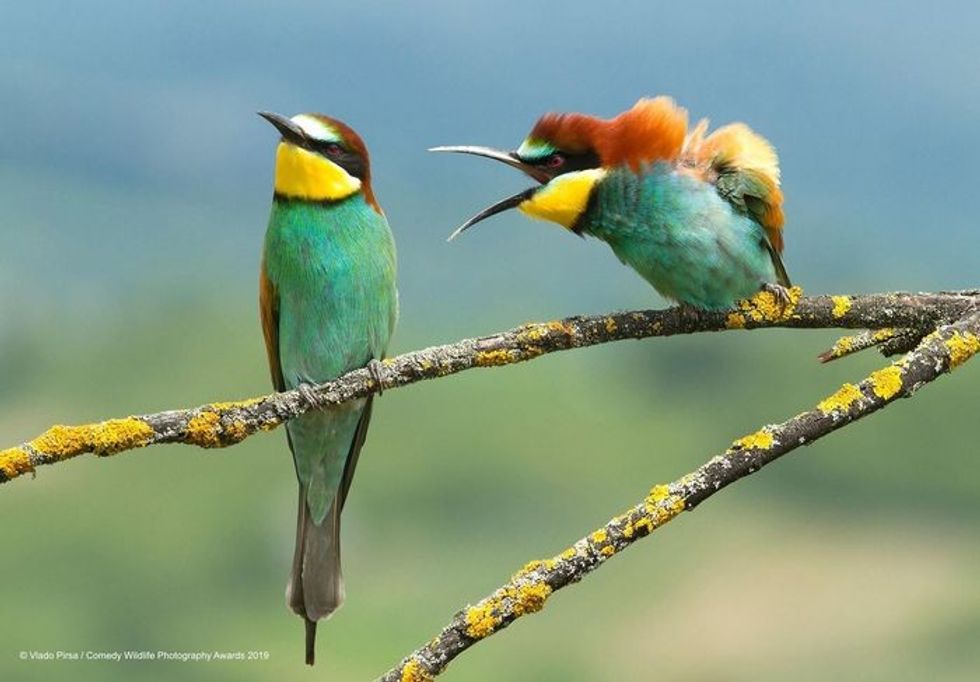 A colorful bird appears to be yelling at it a friend
A colorful bird appears to be yelling at it a friend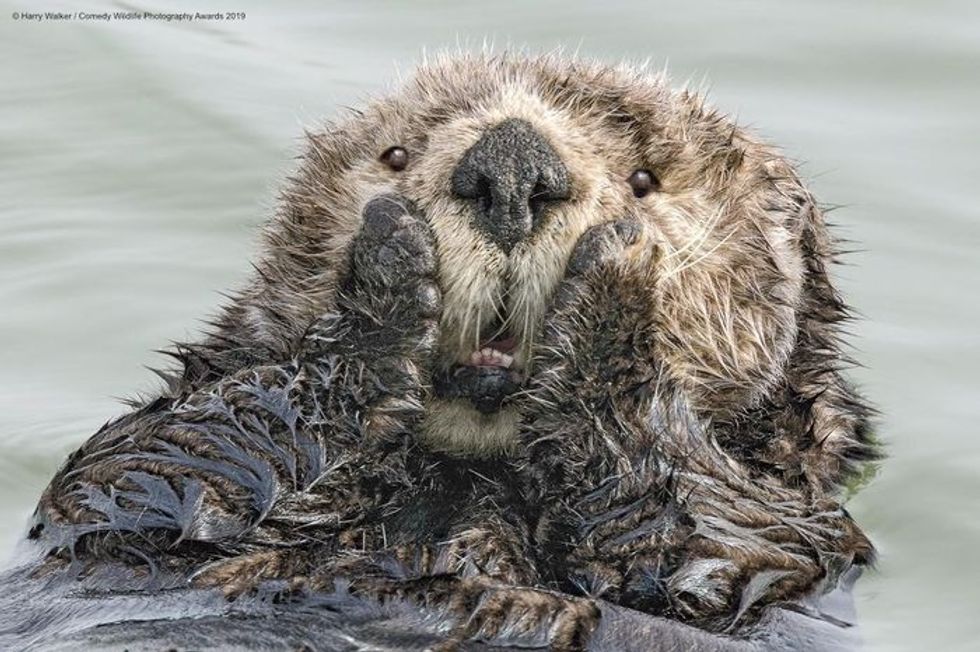 An otter appears like it's holding its face in shock
An otter appears like it's holding its face in shock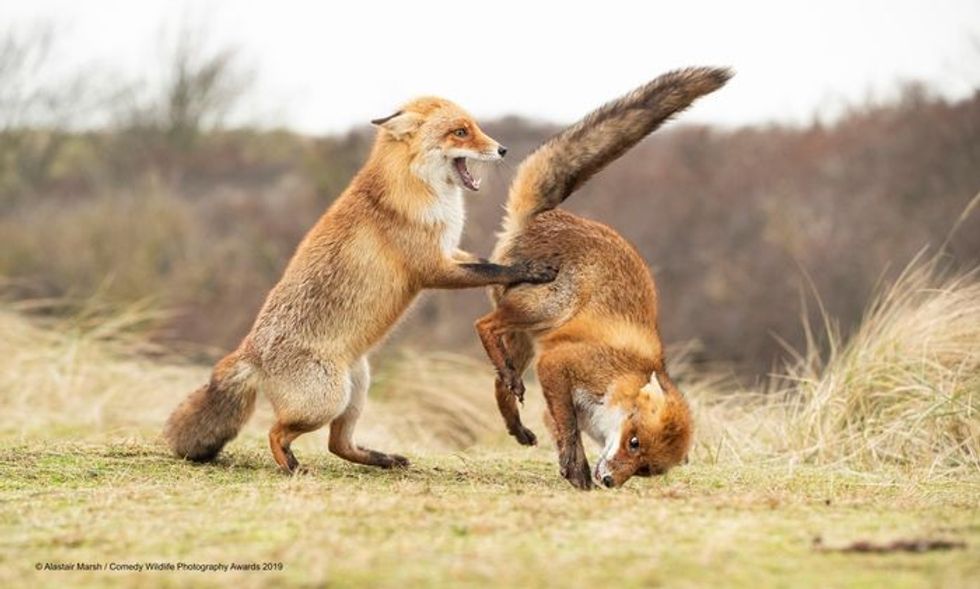 Two young foxes playing in the wild
Two young foxes playing in the wild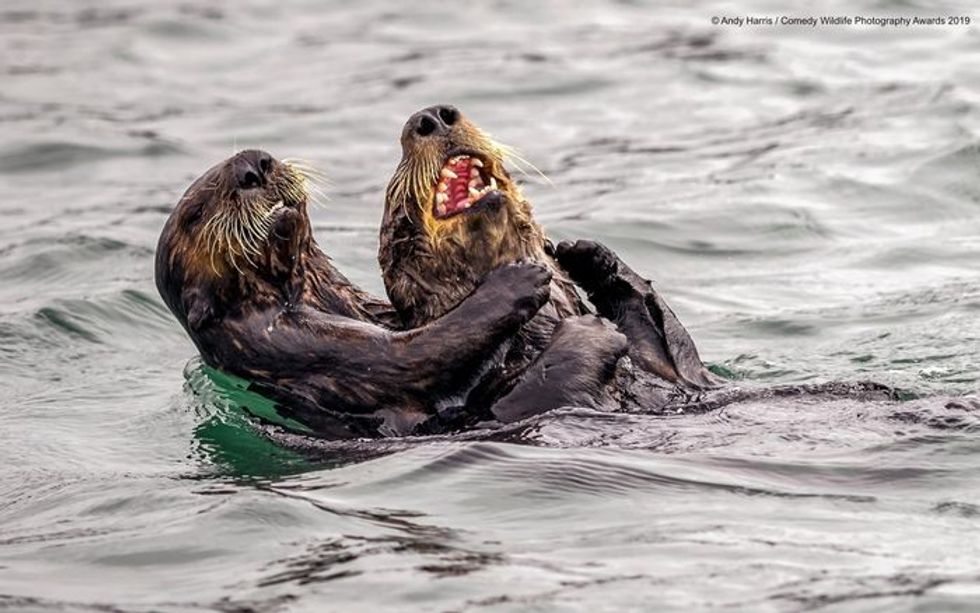 Two otters appear to be laughing together in the water
Two otters appear to be laughing together in the water A fish looks like it's afraid of the shark behind it
A fish looks like it's afraid of the shark behind it A bird appears to be ignoring their partner
A bird appears to be ignoring their partner A squirrel looks like it's trapped in a tree
A squirrel looks like it's trapped in a tree A bear holds hand over face, making it appear like it's exhausted
A bear holds hand over face, making it appear like it's exhausted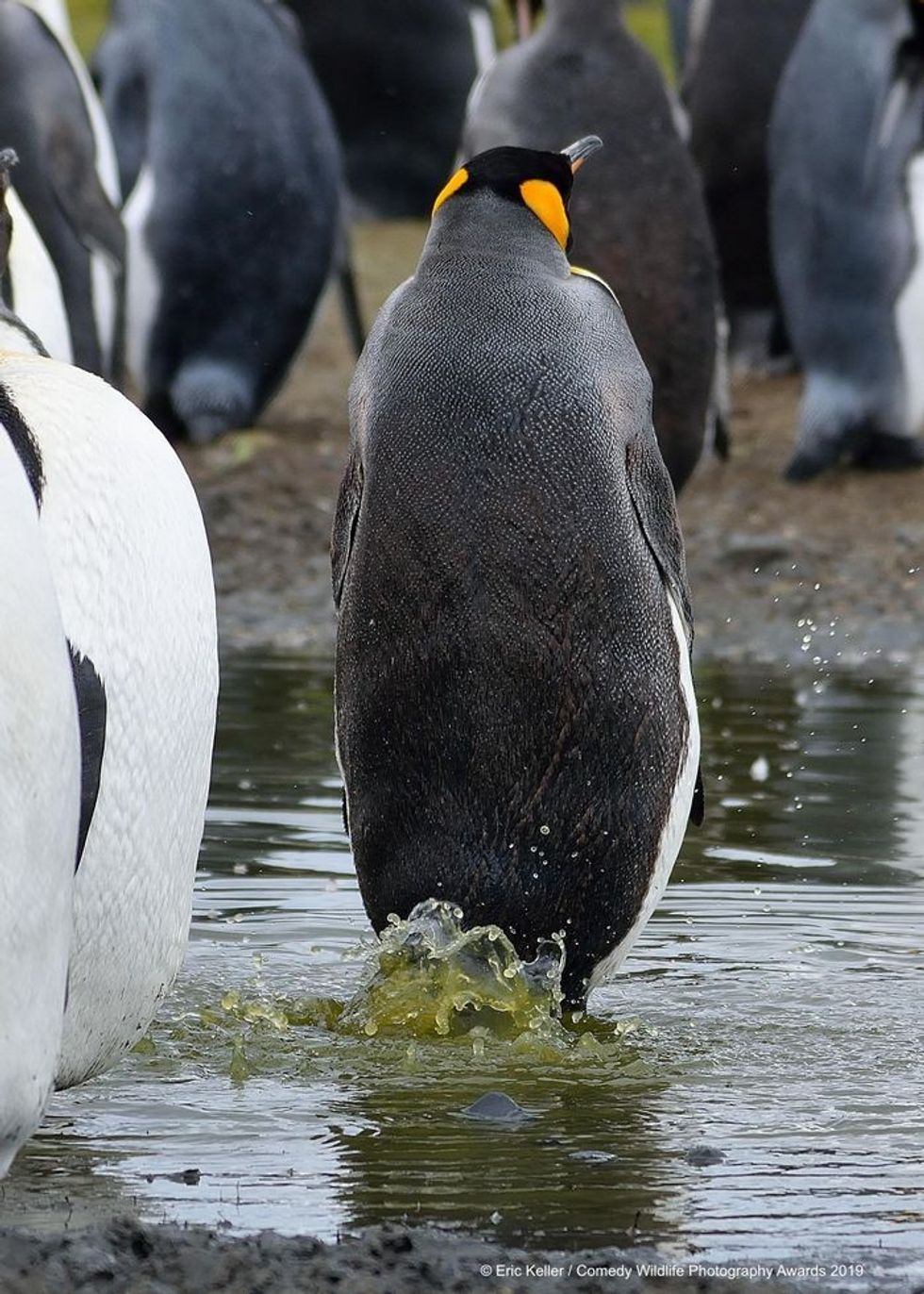 A penguin looks like its trying to appear inconspicuous
A penguin looks like its trying to appear inconspicuous A young squirrel smells a flower
A young squirrel smells a flower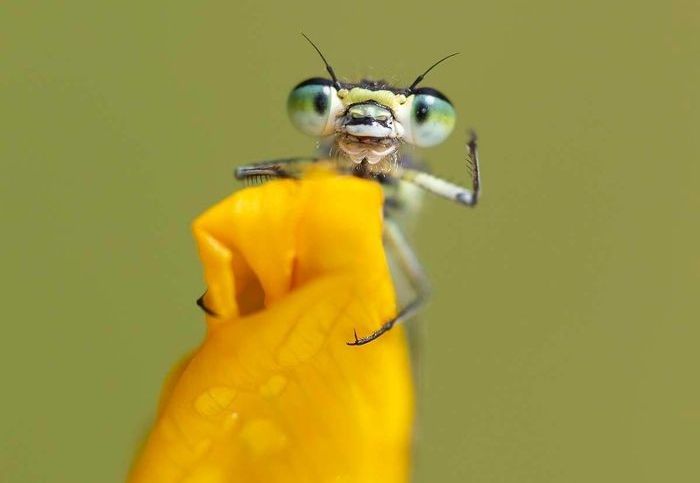 An insect appears to be smiling and waving at the camera
An insect appears to be smiling and waving at the camera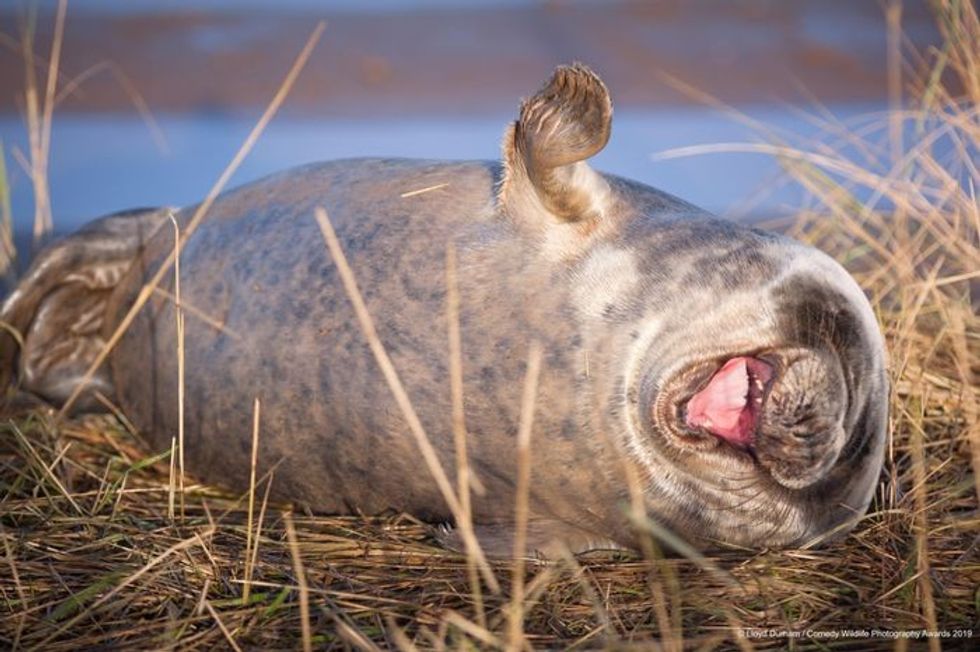 An otter lies on its side apparently cracking up laughing
An otter lies on its side apparently cracking up laughing Two monkeys caught procreating
Two monkeys caught procreating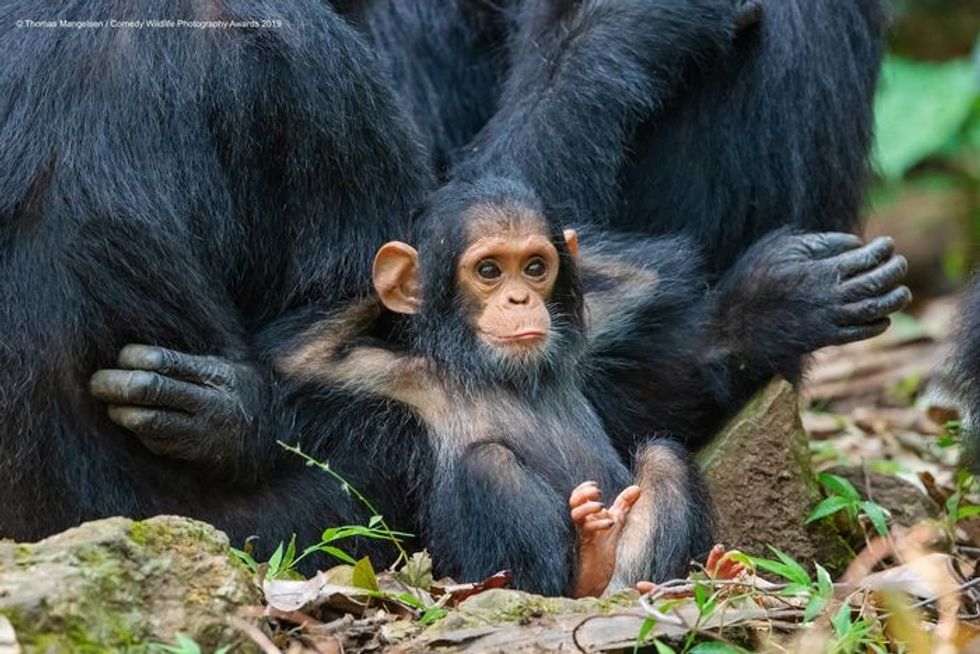 A young chimp relaxes with its hands behind its head
A young chimp relaxes with its hands behind its head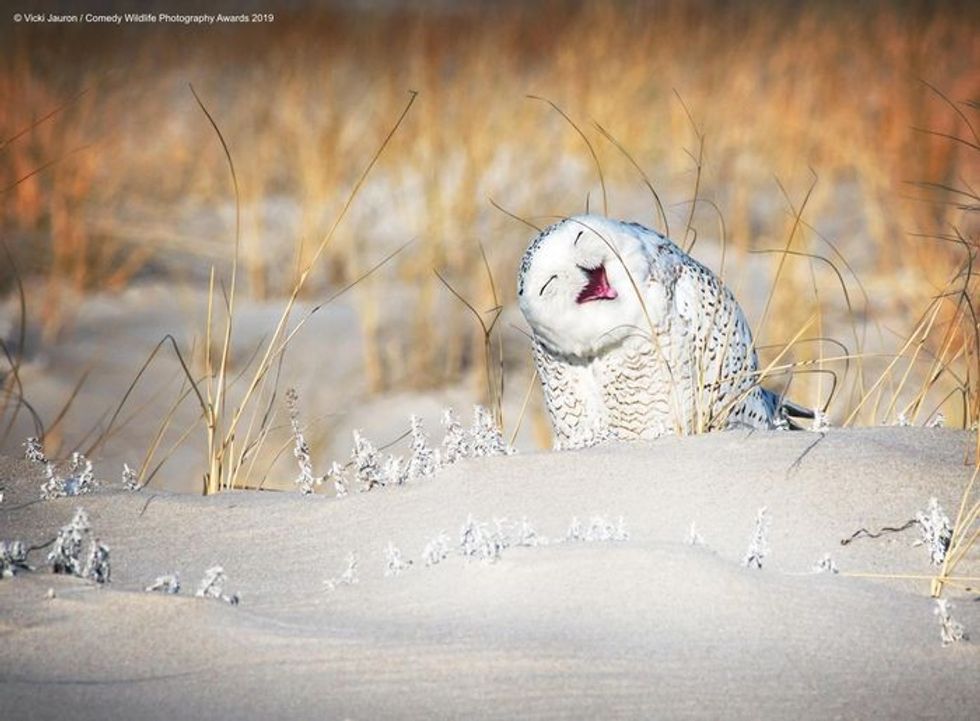 A snowy owl appears to be smiling
A snowy owl appears to be smiling  A monkey holds finger to face as if it's lost in thought
A monkey holds finger to face as if it's lost in thought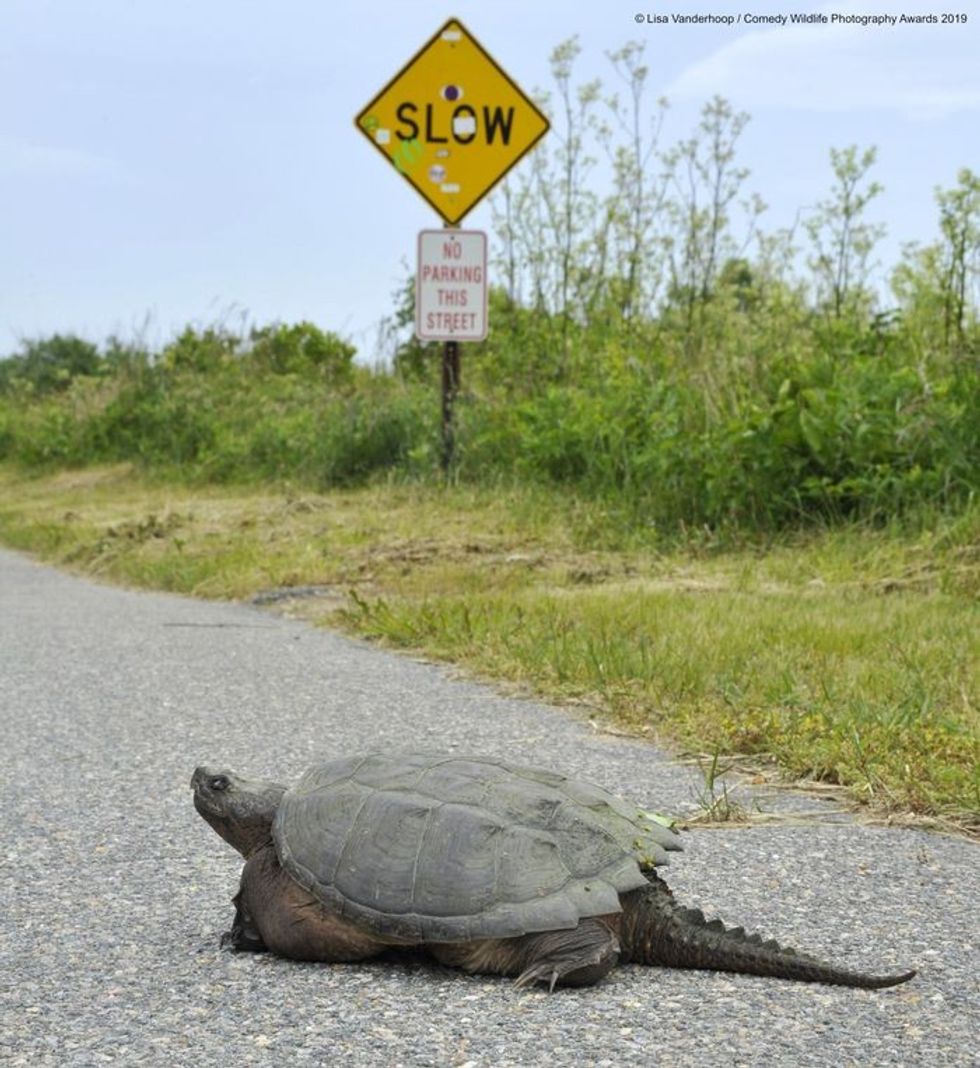 A turtle crossing the road under a 'slow' sign
A turtle crossing the road under a 'slow' sign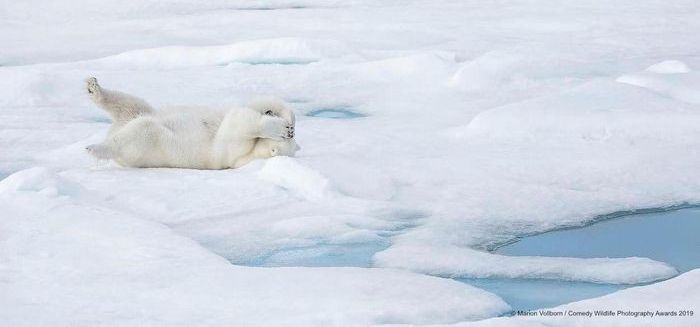 A polar bear lies on its back like it's trying to hide
A polar bear lies on its back like it's trying to hide A rodent strikes human-like pose
A rodent strikes human-like pose

 Ron. courtesy of K-9 Protectors
Ron. courtesy of K-9 Protectors Victoria and Ron.courtesy of Victoria Costa
Victoria and Ron.courtesy of Victoria Costa Ron. courtesy of K-9 Protectors
Ron. courtesy of K-9 Protectors Ron and Tyler at the swearing-in ceremony.courtesy of K-9 Protectors
Ron and Tyler at the swearing-in ceremony.courtesy of K-9 Protectors Ron. courtesy of Victoria Costa
Ron. courtesy of Victoria Costa


 Angela Rafuse and MackenzieAngela Refuse/My Grandfathers Cat/ Instagram
Angela Rafuse and MackenzieAngela Refuse/My Grandfathers Cat/ Instagram
